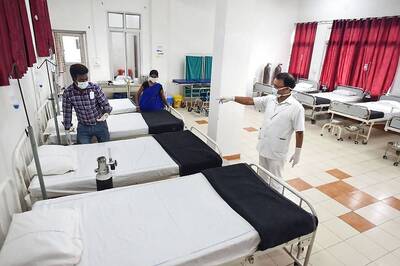
views
Johannesburg: Sure, 24-year-old Gertrude Kitongo cherishes a cell phone as a link to family and friends, from her grandmother in a Ugandan village to former schoolmates in Zimbabwe.
For Kitongo, her cell phone also serves as a radio, library, mini cinema, bank teller and more. The Kenyan-Ugandan who just finished marketing studies in South Africa is an urban, cosmopolitan, on-the-move face of cell phone users on the continent, where a report released Wednesday shows mobile penetration has reached 649 million connections, second only to Asia.
The report by the industry group GSMA, or Groupe Speciale Mobile Association, said Africa is the fastest growing mobile market. For each of the past five years, the number of subscribers across Africa has grown by almost 20 per cent and is expected to reach 738 million by the end of next year.
In releasing its report, GSMA called on African governments to allocate more mobile broadband spectrum and cut taxes on mobile operators to further spur expansion. Citing studies by the World Bank and others, GSMA says that in developing countries, for every 10 per cent increase in mobile penetration there is a 0.81 per cent increase in GDP.
Africa has been described as the Silicon Valley of cell phones because of the innovative ways they are used on the continent. Cell phone networks have been set up to help health care workers in remote villages consult with doctors in cities. Researchers have used cell phone technology to track animals for wildlife studies. Africans use cell phones to make payments across borders.
"The mobile industry in Africa is booming and a catalyst for immense growth, but there is scope for far greater development," said Peter Lyons, a GSMA policy expert.
While GSMA said voice service dominates in Africa, use of data service is increasing steadily.
"I use my phone for everything," Kitongo said.
When she has a spare moment, whereever she is, Kitongo downloads and watches movies or catches up on her Oprah magazine subscription. She makes payments and checks her bank balance using her smart phone, and her bank sends her a text message, or SMS, when she receives a payment. Kitongo has a second, less high-tech phone she uses for its radio, and for her subscription to an east African mobile service that doesn't charge roaming fees in that region, making it cheaper for friends and family in Uganda and Kenya to call her.
If Kitongo uses the land line at her Johannesburg home at all, it's to order in a meal. If she uses her laptop, it's to hook its large screen to her phone for ease of reading Facebook messages. It's cheaper, she says, to explore the Internet using her phone than her computer modem. She also saves money by text and instant messaging instead of calling friends. She can sound like a saleswoman when discussing the airtime and other options open to her, including free messages if they are exchanged among others who use her brand of cell phone.
For all the convenience, Kitongo questions some of the profound changes mobile technology has brought to her life in just a few years. When friends get together for a coffee, she finds they're often distracted, paying more attention to their phones than to the people across the table.
When she was in high school, she said, boys used to write letters to ask her on dates. Now, she said, no one takes time to do more than dash off a few lines in abbreviated "SMS language."
"Now, people break up by SMS," she said.


















Comments
0 comment